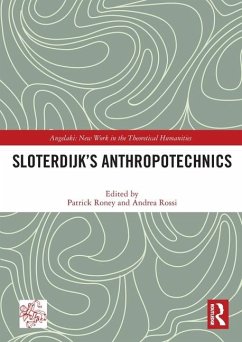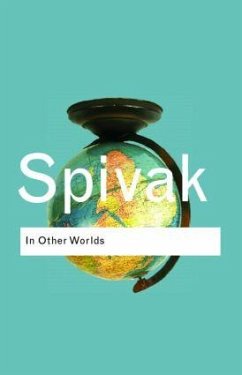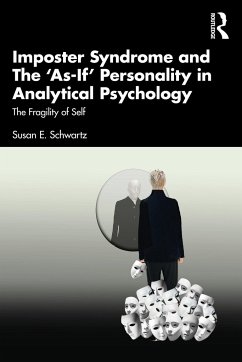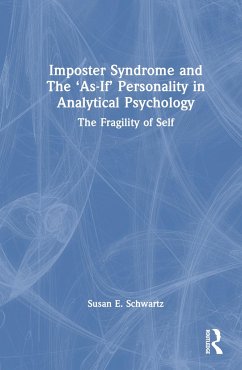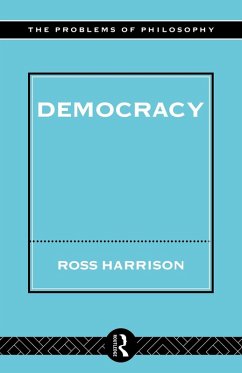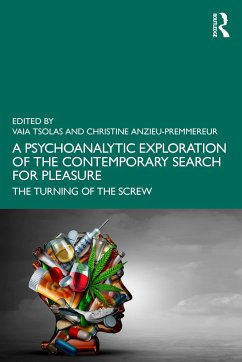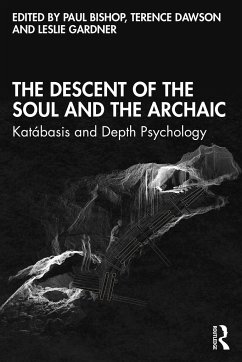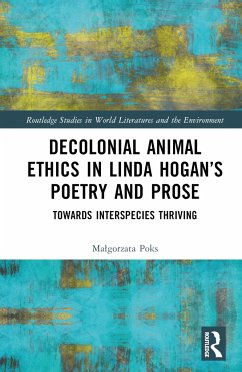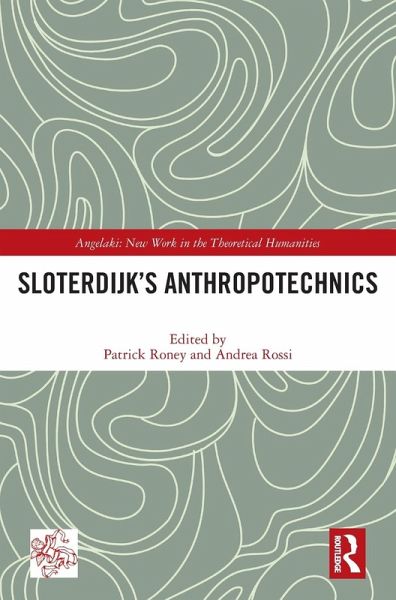
Sloterdijk's Anthropotechnics
Versandkostenfrei!
Versandfertig in 6-10 Tagen
154,99 €
inkl. MwSt.
Weitere Ausgaben:

PAYBACK Punkte
77 °P sammeln!
Peter Sloterdijk is an internationally renowned philosopher and thinker whose work is now seen as increasingly relevant to our contemporary world situation and the multiple crises that punctuate it, including those within ethical, political, economic, technological, and ecological realms.This volume focuses upon one of his central ideas, anthropotechnics. Broadly speaking, anthropotechnics refers to the technological constitution of the human as its fundamental mode of existence, which is characterized by the ability to create dwelling places that 'immunize' human beings from exterior threats ...
Peter Sloterdijk is an internationally renowned philosopher and thinker whose work is now seen as increasingly relevant to our contemporary world situation and the multiple crises that punctuate it, including those within ethical, political, economic, technological, and ecological realms.
This volume focuses upon one of his central ideas, anthropotechnics. Broadly speaking, anthropotechnics refers to the technological constitution of the human as its fundamental mode of existence, which is characterized by the ability to create dwelling places that 'immunize' human beings from exterior threats while at the same time instituting practices and exercises that call on humanity to transcend itself 'ascetically'. The essays included in this volume enter a critical dialogue with Sloterdijk and his many philosophical interlocutors in order to interrogate the many implications of anthropotechnics in relation to some of the most pressing issues of our time, including and especially the question of the future of humanity in relation to globalism and modernization, climate change, the post-secular, neoliberalism, and artificial intelligence.
The chapters in this book were originally published as a special issue of Angelaki.
This volume focuses upon one of his central ideas, anthropotechnics. Broadly speaking, anthropotechnics refers to the technological constitution of the human as its fundamental mode of existence, which is characterized by the ability to create dwelling places that 'immunize' human beings from exterior threats while at the same time instituting practices and exercises that call on humanity to transcend itself 'ascetically'. The essays included in this volume enter a critical dialogue with Sloterdijk and his many philosophical interlocutors in order to interrogate the many implications of anthropotechnics in relation to some of the most pressing issues of our time, including and especially the question of the future of humanity in relation to globalism and modernization, climate change, the post-secular, neoliberalism, and artificial intelligence.
The chapters in this book were originally published as a special issue of Angelaki.





